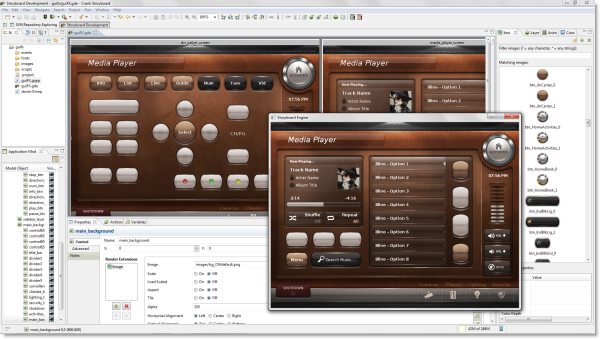Table of Contents
- Introduction
- Compatibility with Previous Versions
- Storyboard Architecture
Crank Storyboard Suite is composed of two components that work together to provide a complete graphical user interface development and deployment environment targeted specifically at the needs of embedded user interface developers.
 |
Storyboard Designer provides a host (Windows/Mac/Linux) based graphical development environment that provides a drag and drop approach to building the user interface using elements familiar to graphic designers, such as Photoshop files and true type fonts.
When a design is ready for testing, it can be either simulated in the desktop environment or easily deployed to an embedded target via an operating system and architecture independent data file that is interpreted by Storyboard Engine. Storyboard Engine is an interpreter that is highly portable and specifically optimized for a specific combination of CPU, operating system and rendering technology.
These two technologies, Storyboard Designer and Storyboard Engine, provide a highly efficient way of transforming user interface prototypes created by graphic designers, using tools such as Photoshop, into working applications ready for deployment.